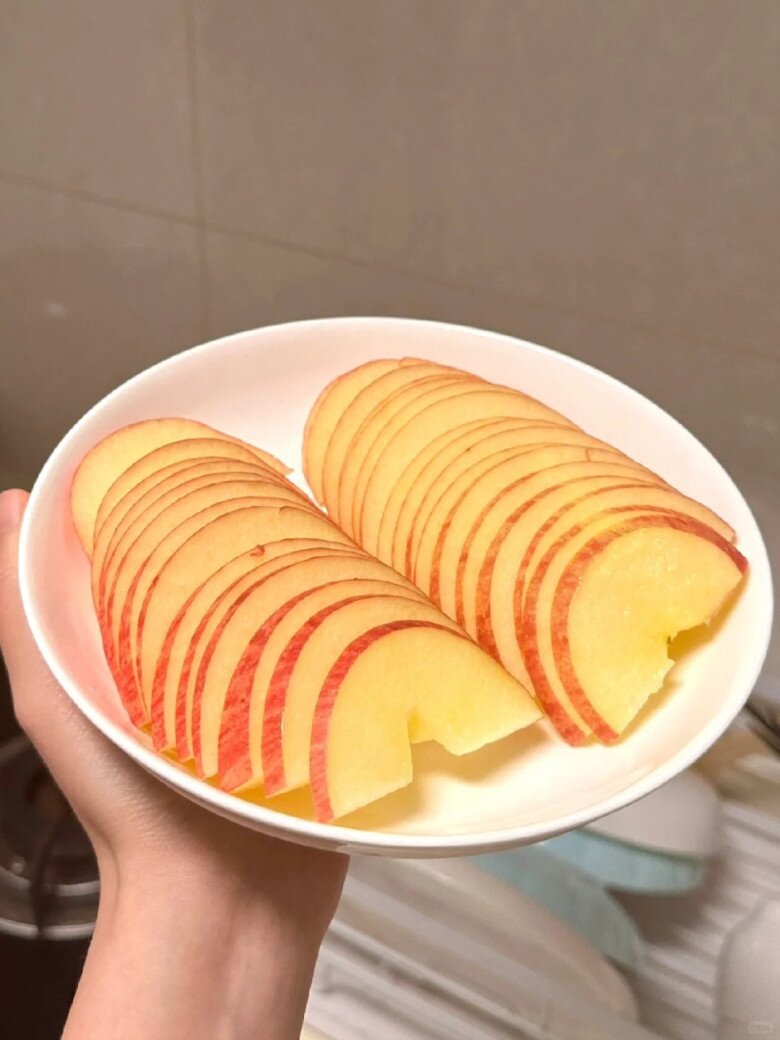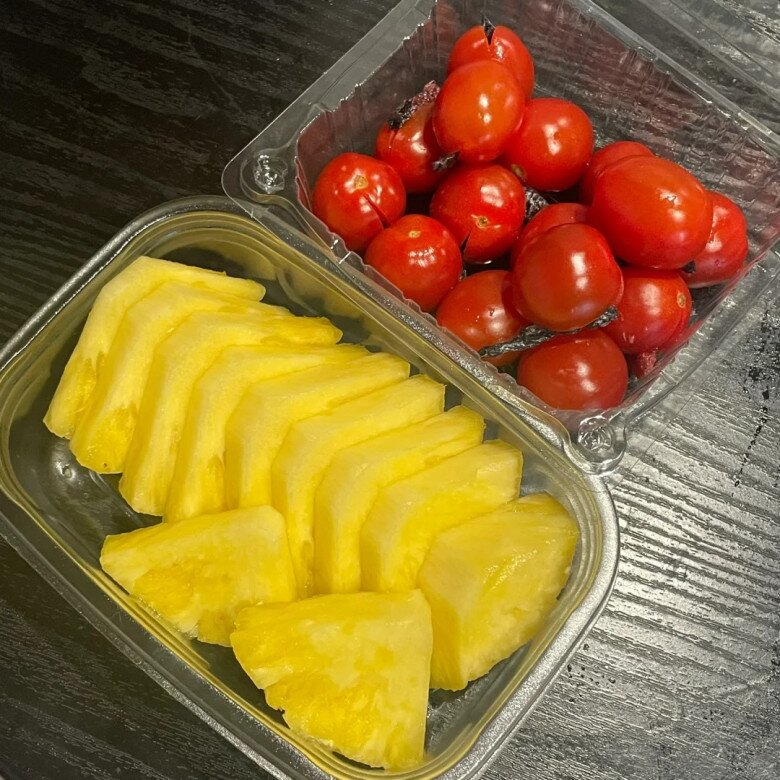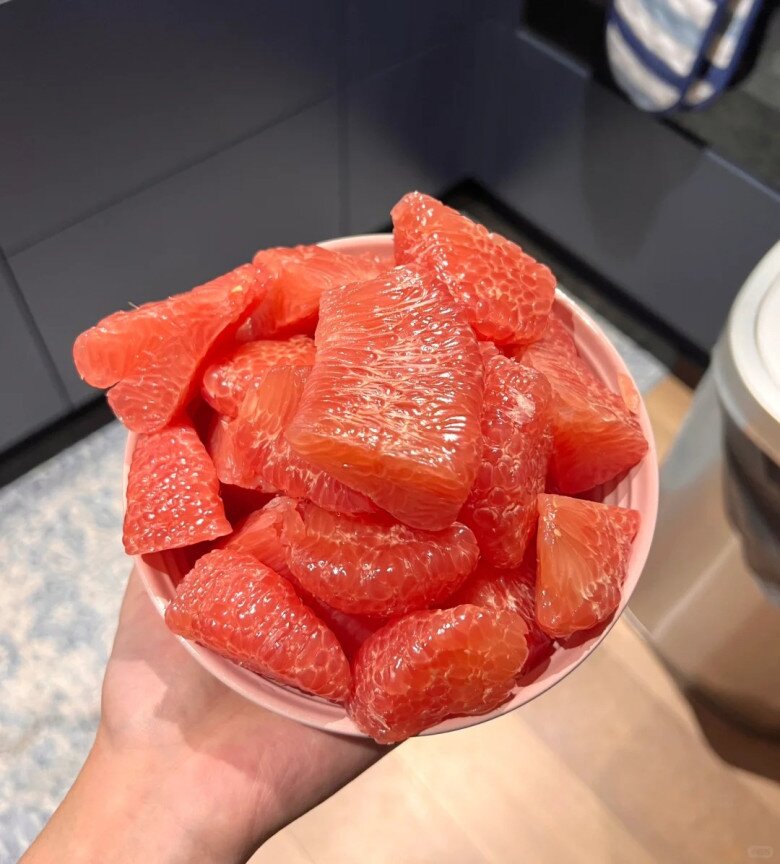Why Do Many Fruit Eaters Struggle to Lose Weight?
While fruits are rich in vitamins, fiber, and minerals, providing energy and supporting health, many people still struggle to lose weight despite eating a lot of fruit. Here are some of the main reasons why eating fruit doesn’t help them lose weight effectively:
1. Choosing the Wrong Types of Fruit
Not all fruits are created equal when it comes to weight loss. Some fruits, like grapes, bananas, mangoes, and durians, are high in natural sugar (fructose) and calories. When consumed in excess, these fruits can cause a surge in blood sugar and calorie intake, leading to fat storage instead of weight loss.

Although fruits are often included in diet plans, eating them incorrectly can lead to weight gain instead of weight loss.
2. Overeating Fruit
Even though fruits are considered healthy, overeating them can still lead to weight gain. Many people believe that eating large quantities of fruit will not cause weight gain because they are low in calories, but this is a misconception. If the calories from fruit exceed the body’s needs, they will be converted into fat, hindering weight loss efforts.
3. Improper Fruit Consumption Timing
The timing of fruit consumption also plays a crucial role in weight management. For example, eating sugary fruits in the evening or before bed can cause the body to store energy instead of burning it. This habit slows down metabolism and leads to weight gain.

Overeating fruit and consuming it at the wrong times can sabotage your weight loss efforts.
4. Lack of a Balanced Diet
Fruit is just one part of an overall healthy diet. If you’re eating a lot of fruit but still consuming high-calorie, high-fat, and sugary foods from other sources, your weight loss efforts will be compromised. Fruit should be combined with a diet rich in protein, fiber, and low in calories to support fat loss.
5. Uncontrolled Fruit Sugar Intake
Even though the sugar in fruit is natural (fructose), it can still impact weight loss if not controlled. Consuming large amounts of sweet fruit can increase blood sugar levels, stimulate insulin production, and cause the body to store fat instead of burning it.
How to Eat Fruit to Effectively Lose Weight
1. Eat Dragon Fruit in the Morning or Before Lunch
Dragon fruit is rich in pectin and fiber, making it an excellent choice for breakfast or a mid-morning snack. The fiber in dragon fruit aids digestion, reduces constipation, and helps control appetite without spiking blood sugar levels. Additionally, its high potassium content helps reduce water retention, and the presence of antioxidants like vitamin C and anthocyanin boost metabolism and burn fat.

Dragon fruit is a perfect choice for managing cravings while keeping blood sugar levels in check.
2. Eat Guava in the Afternoon
Guava is a “golden” fruit for weight loss due to its low GI index, high fiber, and vitamin C content. Eating guava in the afternoon, around 3-4 pm, not only boosts digestion but also creates a lasting feeling of fullness, curbing the urge to snack. Guava is low in calories yet packed with nutrients, helping to regulate blood pressure and enhance metabolism, making it an excellent choice for maintaining a healthy weight.

Afternoon guava snacks support easier digestion and help you stay in shape.
3. Eat Apples Before Meals
Apples are one of the most popular weight loss fruits. Rich in pectin, apples help reduce hunger, leading to a lower calorie intake during main meals. Eating apples before meals not only reduces calorie intake but also boosts metabolism and burns fat thanks to their vitamin C and potassium content.

Apples eaten before meals are a natural and effective way to control your weight.
4. Eat Pineapple and Tomatoes After Meals
Pineapple contains the enzyme bromelain, which aids in digesting protein from meat and seafood. Tomatoes, on the other hand, are rich in organic acids that regulate digestive functions and prevent fat accumulation. Both fruits are low in calories, making them ideal for consumption after meals without worrying about weight gain.

Pineapple and tomatoes offer high nutritional value with low-calorie content, making them perfect for a weight loss diet.
5. Eat Grapefruit in the Evening
Grapefruit is rich in vitamin C and fiber, boosting metabolism and promoting fat burning in the evening. However, it’s important to exercise caution as grapefruit can interact with certain medications. When consumed at night, grapefruit helps detoxify the body, improves digestion, and naturally supports weight loss without the worry of excess calorie intake.

The evening is the best time to eat grapefruit to maximize its weight loss benefits.
Massage or Thread-lifting: Which is the Better Weight Loss Option This Winter?
As winter approaches, the drop in temperature leads to reduced physical activity and a slower metabolism. Traditional Chinese Medicine offers a plethora of health and weight loss support methods, with massage therapy and acupressure being two popular choices. But which therapy should you opt for to achieve optimal results?





































